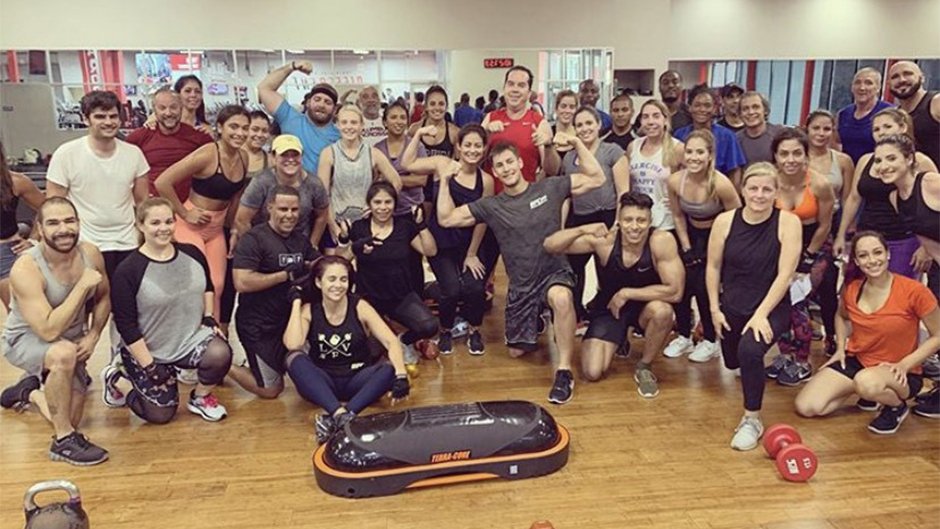 At the age of 12, Chris Fitzmaurice still struggled to speak in full sentences. He didn’t read or write well and missed every expected childhood development milestone.
At the age of 12, Chris Fitzmaurice still struggled to speak in full sentences. He didn’t read or write well and missed every expected childhood development milestone.
After being diagnosed with autism at the age of 2, Fitzmaurice began therapy, but it wasn’t entirely successful. When the left side of his body went numb at the age of 5, because of encephalomyelitis—swelling of the brain and spinal cord—he was told he would never live a normal life. In fact, he would most likely never walk normally, attend regular schools, play sports, drive, or work. It seemed inevitable that his diagnoses would dictate his future.
It wasn’t until high school that Fitzmaurice decided to try something new. In between special courses, tutors, and dodging bullies, his father encouraged him to pick up weights in the gym. Consistency was the easy part—he thrived off the routines—and soon he began to experience the physical and mental benefits of exercise. Those around him took notice.
“People started to ask me questions about how to get stronger and perform the exercises I was doing. For the first time in my life I felt like I was good at something,” said Fitzmaurice.
Today, as an exercise physiologist at Sylvester Comprehensive Center and group fitness instructor at both the Herbert and UHealth Wellness centers, Fitzmaurice has defied the odds and continues to inspire many others.
“My overall goal, no matter what, is to be a champion for the people,” said Fitzmaurice. “I want to use physical activity to save lives and bring happiness to people. That’s what exercise did for me, and still does, while living with autism,” he added.
In his various roles at the University he has implemented ways to use exercise to uplift and heal those around him. At Sylvester Comprehensive Cancer Center, he works with cancer patients and survivors, finding ways to prescribe exercise as part of their mental and physical recovery. When he isn't working as part of the Cancer Support Services team, he leads students and faculty and staff members through group workout classes on both the Coral Gables and medical campuses, and he has developed quite a following.
 Teresa Neira, a clinical social worker for the Miller School of Medicine and colleague, fondly recalled talking to Fitzmaurice about her fitness and weight-loss goals.
Teresa Neira, a clinical social worker for the Miller School of Medicine and colleague, fondly recalled talking to Fitzmaurice about her fitness and weight-loss goals.
“When I approached Chris about helping me lose 20 pounds, he didn’t hesitate to help; he said he could help me lose even more,” said Neira. “I joined the UHealth Fitness and Wellness Center to be able to take more of his classes, and then I was hooked,” she added. “I owe my life to Chris. Not only did he help me lose weight, but he added years to my life and helped me find ways to manage my mental health.”
To Fitzmaurice, exercise is only one piece of the puzzle. His true goal is to continue to motivate those around him to be the best version of themselves, regardless of a diagnosis or disability. “My advice to anyone on the spectrum is not to give up,” he said. “Find a passion that is going to help you connect to others and continue working toward your goals.”
Temporary closures of the UHealth Fitness and Wellness Center and the Patti and Herbert Wellness Center haven’t stopped Fitzmaurice from reaching out to others in need. Each day, hundreds of people tune in to Instagram live—@fitzmack88—for his free workouts. University faculty, staff, and students can access his free workouts through Rec Movement.

